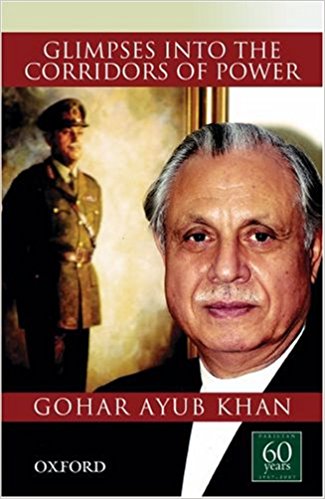It must surely be a most difficult undertaking to be the son of the founder of a state and to try and describe yourself and your life. For Field Marshall Mohammed Ayub Khan was as much the founder of the state of Pakistan as Mohammed Ali Jinnah was the founder of the nation. Jinnah was liberal and has even been described as secular by some; he was, specially in his later years, democratic enough to be unable to recognize the kind of democracy which is extant there today. He certainly would not have recognized the complex set of military dominated institutions that run the state from any blueprint which he might have had in mind, and of which we have some idea from his speeches. Ayub Khan, on the contrary, would have been quite at home. Periodic military rule, the role of the armed forces in politics, the economy and society, the framework of administration, that whole complex machinery that goes by the name of the state, all that was created or imagined by him. He gave most of it life and made it work. And his son, born with the sceptre of power, so to speak, in his hand, was never quite able to take full advantage of it.
He starts this autobiography with the bland enough prefatorial statement that much has happened over the years and ‘I can surely say as much for the years that comprise my lifetime’ (p. vii). Then he goes on to describe his life and times, starting with his roots in the North West Frontier Province of Pakistan, as becomes a Pakhtun family of the Tor Tareen tribe. His ancestors were tribal leaders in this region. His father had a good physique and a fair complexion; in fact ‘he looked more British than the British’ (p. 7).

